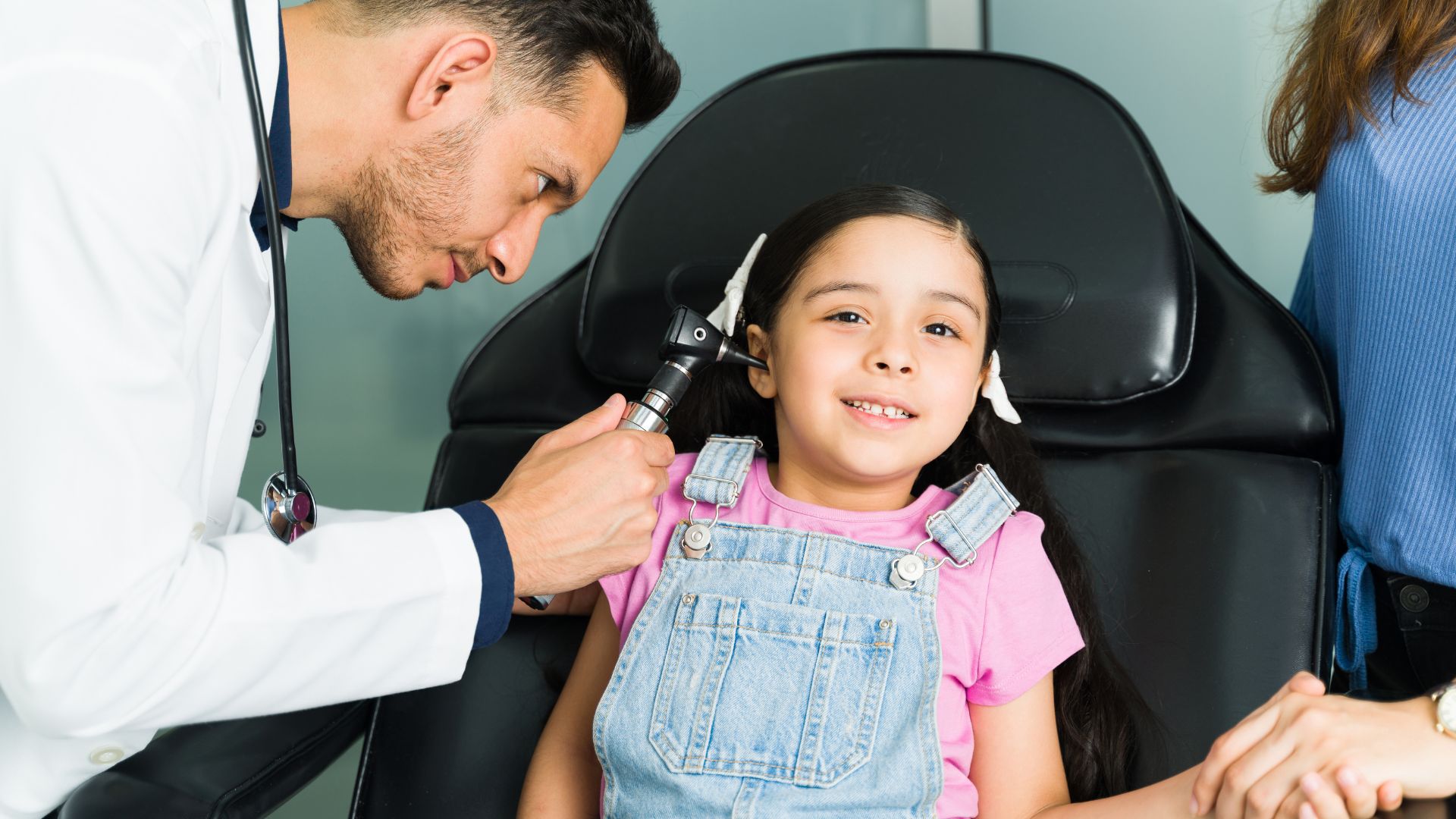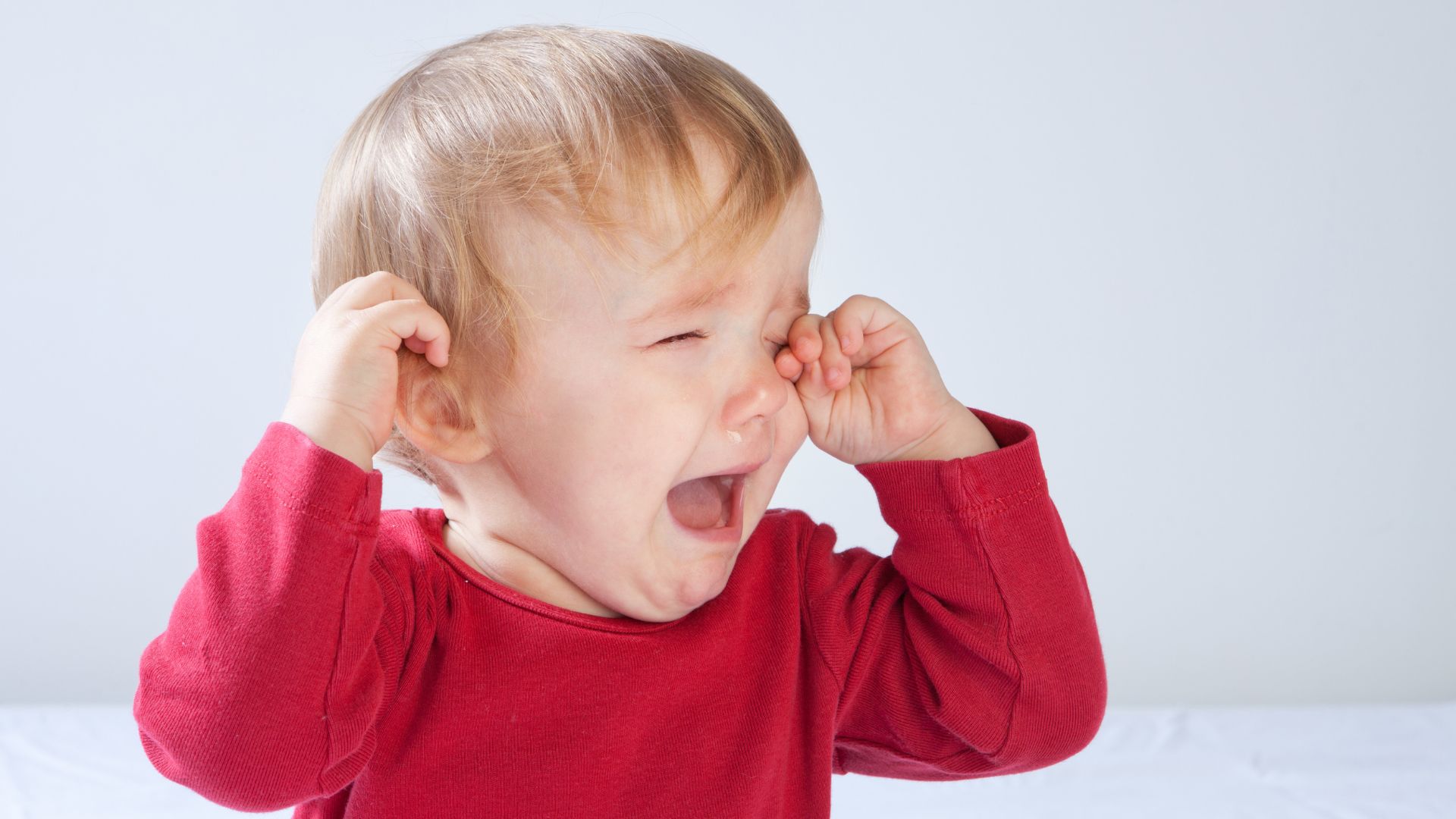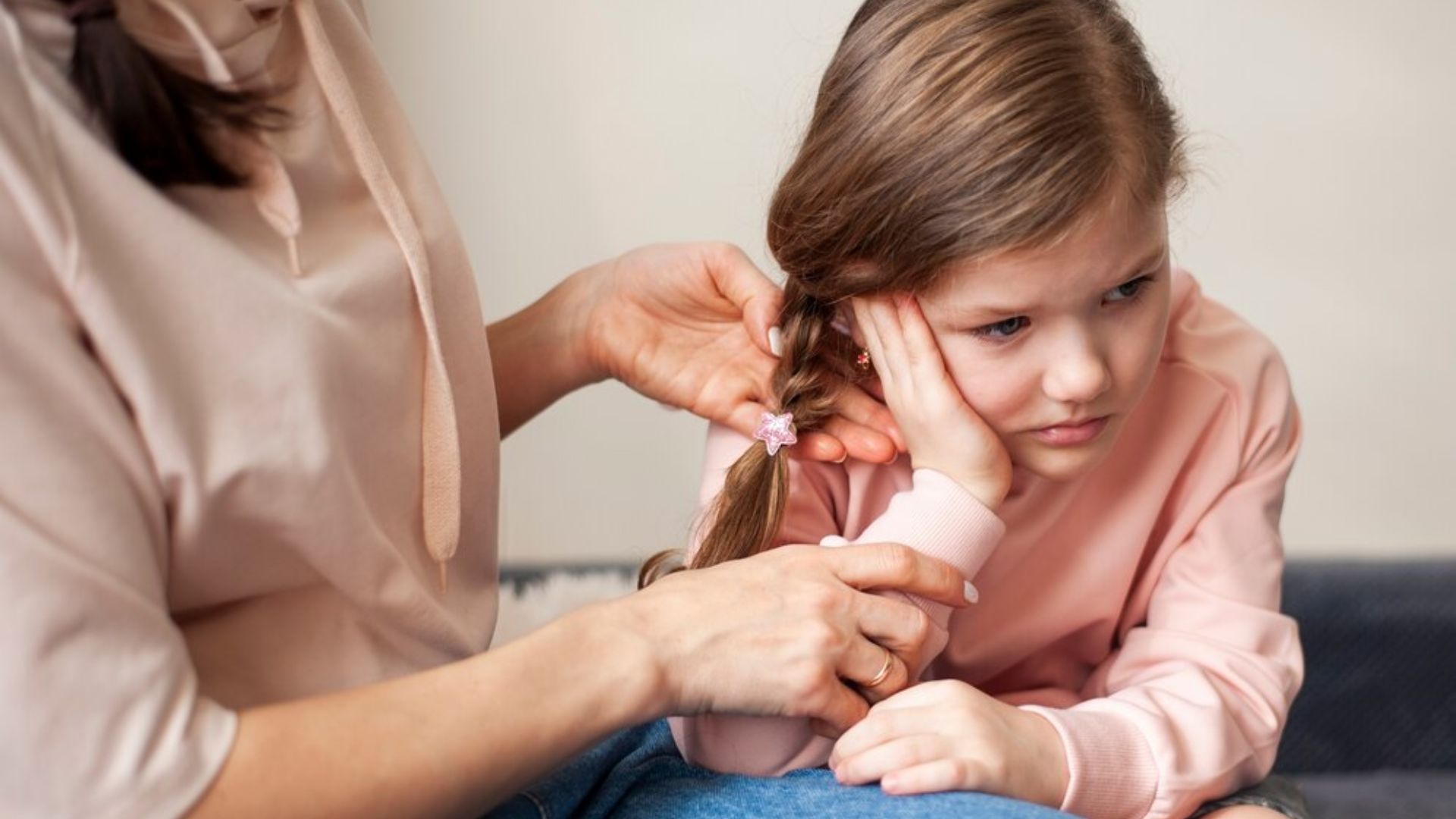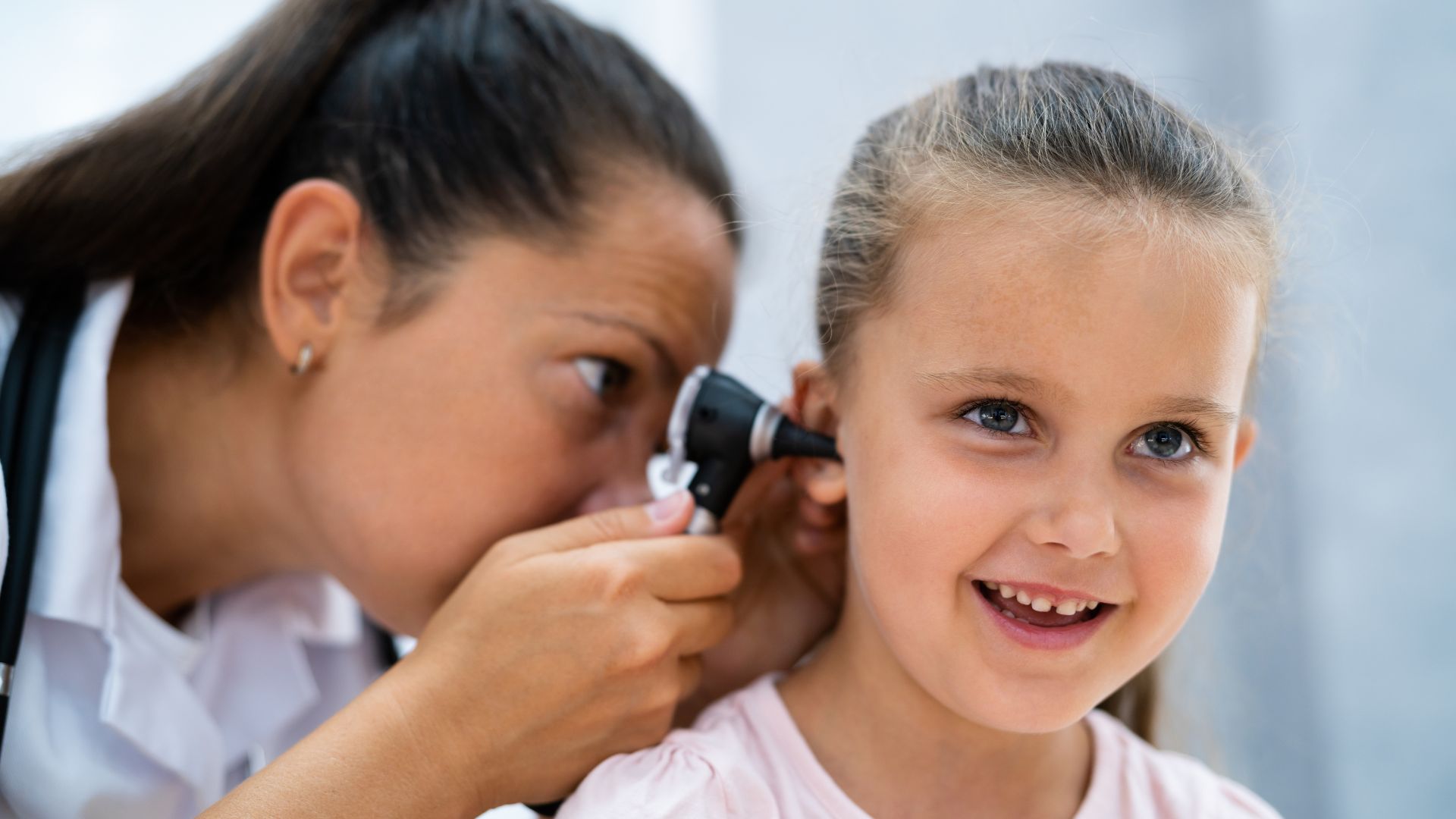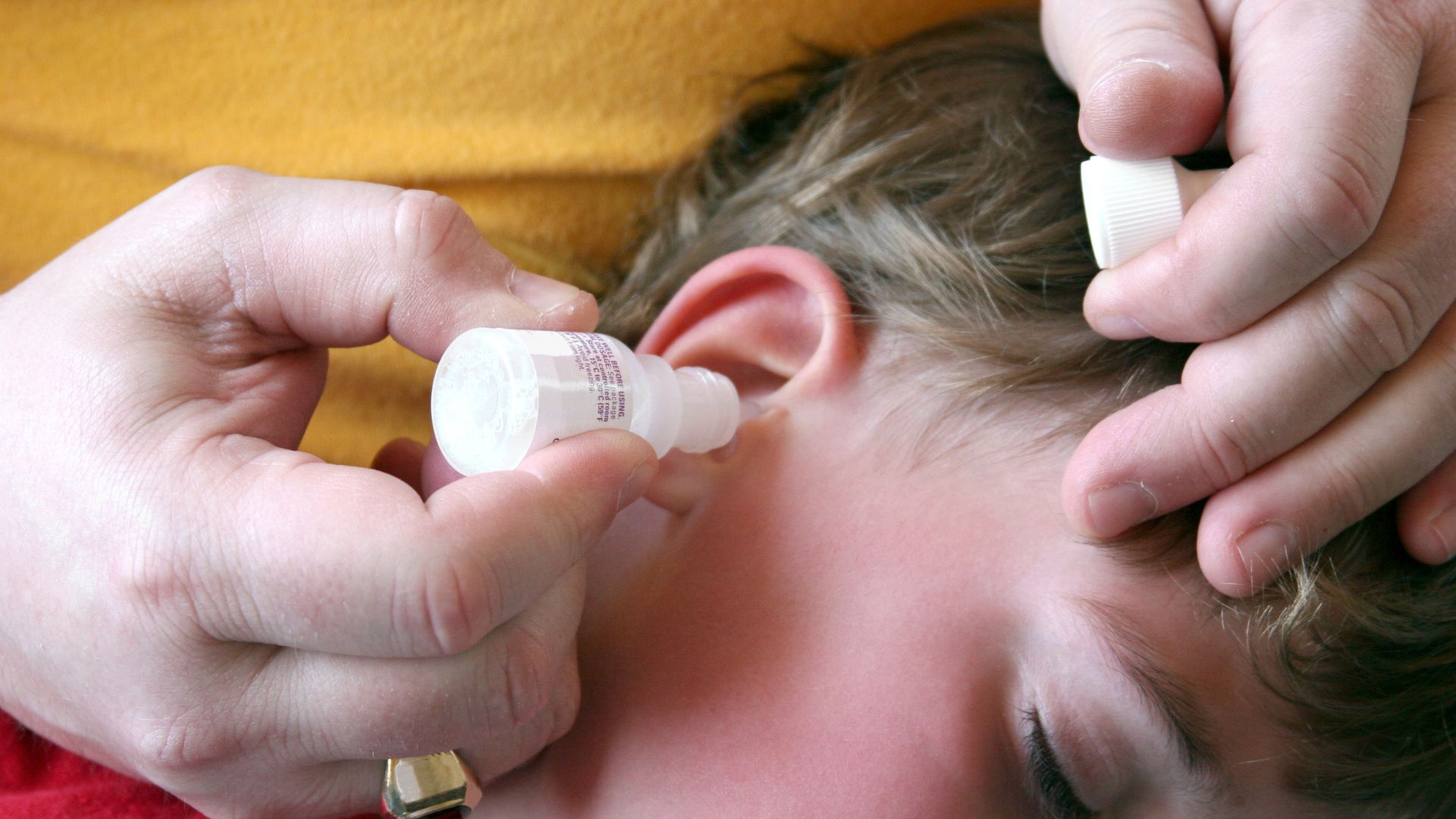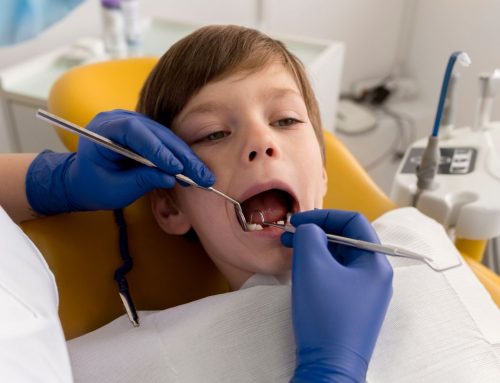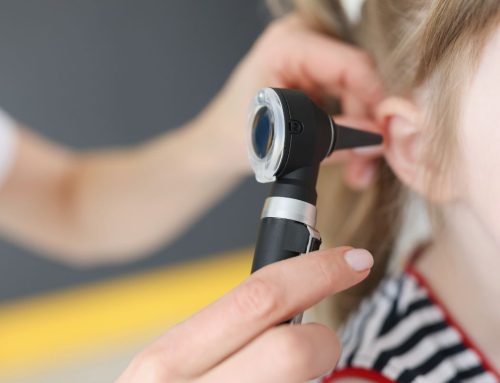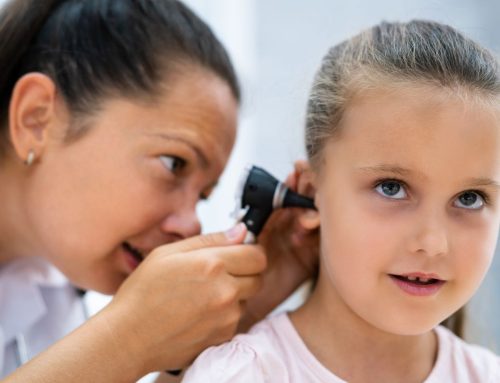Worried your baby might have an ear infection? Key symptoms of an ear infection baby include crying, ear tugging, and trouble sleeping. This article helps you identify these signs and understand when to seek medical help.
Key Takeaways
- Key symptoms of ear infections in babies include excessive crying, ear tugging, sleep disturbances, fever, and ear drainage.
- Prompt medical attention is essential when symptoms like high fever, severe pain, or unusual ear discharge occur to prevent complications.
- Preventative measures such as good hygiene, proper feeding positions, avoiding secondhand smoke, and keeping vaccinations up-to-date can significantly reduce the risk of ear infections.
Recognizing Ear Pain in Babies
Parents must be vigilant to the non-verbal cues of ear pain in babies, as they cannot articulate their discomfort. Look for signs such as increased crying and unusual irritability, which could point to an ear infection.
When infants pull or tug at their ears, this behavior is often a sign that they are experiencing pain or unease due to some issue with the ear.
Sleep patterns may be disrupted because the discomfort associated with an ear infection can make it difficult for infants to remain asleep, causing them to wake up frequently. Identifying these symptoms promptly ensures quick medical attention and relief from distress.
Tugging or Pulling at Ears
Frequently pulling or yanking on the ears is commonly considered a warning sign of ear infections. Such behavior arises as an automatic reaction to discomfort and pressure resulting from inflammation within the sore ear canal.
Nevertheless, it’s important to note that not all instances of ear tugging point toward an infection in the ear. Infants may also grab their ears simply for comfort or during the discovery of their body parts. The presence of additional indicators such as fever or crankiness, coupled with this behavior, provides more conclusive evidence suggesting an infection in the ear.
Difficulty Sleeping
Battling ear infections can make getting a baby to sleep quite the ordeal. When lying down, babies may experience increased pain due to shifts in pressure within the middle ear, which often results in frequent awakenings and trouble drifting off.
Due to an ear infection’s resulting general discomfort and unease, your child’s regular sleeping routine might become unsettled. There could be more instances of waking up crying or difficulties calming down for restful slumber again. Grasping this dynamic is crucial for setting realistic expectations and finding ways to soothe your little one’s pain.
You might notice that as they grow weary, infants have a tendency to pull at their ears more frequently as a way of comforting themselves. Identifying these behaviors is essential. It allows parents to ascertain if disturbed sleep patterns are symptomatic of an ear infection and decide on the best course of action accordingly.
Ear Drainage
Ear drainage, manifesting as a thick yellow substance or possibly even blood emanating from the ear, is a prominent indication of an ear infection. This discharge typically suggests that there has been a perforation in the eardrum due to the infection, which permits fluid to leak out.
While not every child suffering from an ear infection will have symptoms of ear drainage, any abnormal secretion is a clear sign that medical intervention is necessary for your child. It’s essential to seek this attention promptly to tackle the infection and prevent additional health issues.
Fever and Ear Infections
A heightened body temperature, frequently observed with ear infections, is a sign that the immune system is responding to an infection. An ear infection might be present if there’s a recorded temperature of approximately 100°F or above. Keeping track of your child’s fever can assist in assessing the gravity of their condition and determining when it’s necessary to consult medical assistance.
Although not all ear infections result in significant fevers, monitoring for this key symptom is important, especially since young children are more prone to potential complications related to these infections. The presence of fever serves as evidence that the body’s defense mechanisms are actively engaged against an invading infection.
Hearing Difficulties
Infections in the ear can prompt an accumulation of fluid behind the eardrum, leading to discomfort and a temporary reduction in hearing capacity. Due to this fluid, sound waves cannot effectively pass through the ear, giving rise to blocked ears and various symptoms typical of an ear infection.
Should you observe that your infant is not as alert to sounds or appears to struggle with hearing clearly, it’s likely a consequence of this temporary auditory loss. While concerning, normal hearing typically returns after the resolution of both infection and fluid presence.
If fluid persists over time—a condition often referred to as glue ear—it may impede one’s ability to hear properly and consequently hinder language development if left untreated. It is essential for caregivers to monitor their child’s auditory responses closely and seek medical consultation if any persistent issues arise so as to ensure their healthy growth and well-being.
Loss of Balance and Clumsiness
An ear infection within the inner ear can disrupt a baby’s equilibrium, causing symptoms such as dizziness and a lack of stability. As you observe your infant, you may detect an increased level of clumsiness or difficulties with activities like sitting upright or walking.
The cause behind this balance disorder is inflammation in the vestibular system, which has significant functions in regulating balance. In infants who are still honing their motor abilities, manifestations like dizziness and instability can be particularly worrying.
It’s vital to keep an eye on your child’s physical coordination when they’re experiencing an ear infection since these balance disturbances frequently result in awkward movements. Early intervention for these signs is key to averting mishaps and preserving your child’s well-being.
Digestive Issues
Gastrointestinal reactions like diarrhea and vomiting can be an outcome of the body’s reaction to ear infections. If not properly managed, these symptoms have the potential to lead to dehydration.
The pain associated with the infection may decrease your child’s desire for food and drinks, making normal eating and drinking challenging. Keeping track of these digestive issues and seeking advice from a pediatrician if they continue is vital for your child’s health and healing process.
Treating Ear Infections
Managing ear infections often entails utilizing antibiotics and analgesics to address acute episodes. Adhere stringently to the healthcare provider’s guidance, continuing the entire antibiotic regimen even if there is an early alleviation of symptoms.
In instances where the severity is moderate, medical professionals may opt for an observational approach before immediately resorting to antibiotic treatment. This method combats the development of antibiotic resistance and confirms that intervention is applied judiciously.
For those children plagued by persistent or middle ear infections, surgical measures like inserting tiny tubes into the eardrum may be proposed. These interventions aid in enhancing ventilation and curtailing fluid accumulation within the middle ear, which can lead to a substantial downturn in infection rates and ameliorate daily comfort.
Ensuring consistent follow-up examinations guarantees thorough recovery from infections while forestalling any ensuing complications. Periodic evaluations with your pediatric care specialist are crucial for tracking healing progress and averting future incidents of ear infections.
Preventing Ear Infections
Taking proactive measures is key to averting ear infections. Maintaining proper hygiene through consistent handwashing and sanitizing surfaces can hinder the transmission of bacteria and viruses.
Holding infants upright during bottle-feeding may decrease the chance of liquids flowing back into their eustachian tubes, thereby lowering the probability of developing ear infections. It’s also essential to shield children from secondhand smoke because it elevates their susceptibility to these infections.
Immunizations are a critical defense against various ailments that could lead to ear infections, such as pneumonia and influenza. Ensuring your child receives timely vaccinations can notably diminish their likelihood of experiencing ear infections.
When to See a Doctor
It’s essential to understand when it’s necessary to seek medical assistance for ear infections, particularly those of the middle ear. The presence of a fever that reaches or exceeds 102.2°F (39°C) typically signals the need for professional healthcare attention. Likewise, if one experiences intense pain, discharge that resembles blood or pus, or symptoms that don’t subside, consulting with a physician is advised.
For infants and toddlers below two years old who are more prone to complications from ear infections, prompt medical intervention can be critical. Parents should keep a close watch on their little ones’ health indicators and not hesitate to get medical guidance upon observing any troubling signs.
Given that most visits to pediatric clinics stem from ear infections like middle ear infections in children, recognizing and treating such conditions quickly is pivotal. Early consultation with your child’s pediatrician at the slightest hint of an infection in the ears can lead to swift treatment and minimize potential impacts on your child’s well-being.
Summary
It is vital to be aware of the signs that indicate ear infections in infants, as early detection and proper care are key for successful management. Symptoms such as ear pain, fever, challenges with hearing, and even gastrointestinal problems should alert caregivers to potential issues needing attention.
Proactive steps and swift medical response can greatly mitigate the effects of ear infections on your little one’s health. Always turn to your child’s pediatrician for guidance on how best to handle and treat ear infections. This will help maintain your baby’s good health and happiness.
At Pediatric Ear Nose and Throat of Atlanta, P.C., we are committed to providing expert care for your child’s ENT needs. Our team of Board-Certified, Fellowship-Trained pediatric professionals is dedicated to ensuring the best health outcomes through early intervention and personalized treatment plans.
If your child has an ear infection or any other ENT issue, don’t wait. Contact us today to schedule an appointment and get the specialized care your child deserves. Your child’s health and comfort are our top priorities.
Frequently Asked Questions
What are the common signs of ear infections in babies?
Common signs of ear infections in babies include excessive crying, irritability, ear tugging, difficulty sleeping, fever, and ear drainage.
If you notice these symptoms, it’s important to consult a healthcare professional for advice.
How can I prevent ear infections in my baby?
To prevent ear infections in your baby, practice good hygiene, keep them away from smoke, feed them in an upright position, and ensure their vaccinations are current.
These measures significantly reduce the risk of infections.
When should I take my baby to the doctor for an ear infection?
You should take your baby to the doctor for an ear infection if they have a fever of 102.2°F or higher, experience severe pain, or show any bloody or pus-like discharge.
Persistent symptoms despite treatment are also a reason to seek medical attention.
What treatments are available for ear infections in babies?
For babies with ear infections, effective treatments include antibiotics, pain relievers, and, in certain cases, surgical options like the placement of ventilation tubes.
It’s essential to consult a pediatrician for the best course of action based on the severity of the infection.
How does Pediatric ENT of Atlanta assist with ear infections?
At Pediatric ENT of Atlanta, we are dedicated to the specialized diagnosis and treatment of ear infections. We focus on early intervention and tailor our care to each child’s needs, striving for the best possible results.

